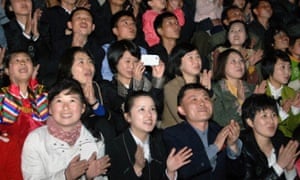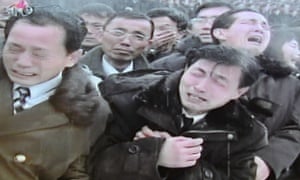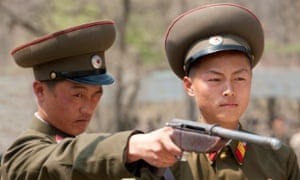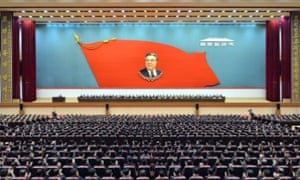Global media remain fascinated with North Korea’s supposed weirdness.
Yet on the face of it, the North Korean government is neither uniquely authoritarian nor the population uniquely economically badly off. From Laos to Turkmenistan in Asia; Equatorial Guinea to Zimbabwe in Africa; and Syria to Saudi Arabia in the Middle East, political dissent is brutally suppressed and freedom still to be won elsewhere, too.
But such is the power of the global media cliches that these simplistic understandings dominate global thinking about the country.
The impression is of a society of 24 million people – more or less the same size of the population of Australia – as frozen in time.
These caricatures need to be jettisoned. North Korea, like every country in the world, is idiosyncratic – but not inexplicable.
‘North Koreans are different from you and me’

Perhaps the most pervasive myth is that North Koreans are ignorant of the world outside, and believe everything the government tells them.
This is extended by the assumption that North Koreans are educationally backward, and lack the sophistication to understand the world beyond their borders.
Images of public behaviour at events – such as the funeral of Kim Jong-il in December 2011 – are presented as evidence that North Koreans are brainwashed, bizarre and inexplicable.
North Koreans are indeed subject to arelentless socialisation campaign that glorifies the exploits of the Kim family and inflicts sanctions on those who criticise the country’s rulers.
Yet despite the best efforts of the North Korean government, the picture of the DPRK as an absolutely closed society is far from the truth today.
The North Korean government works hard to prevent the free flow of information into the country. Students studying in Pyongyang have access to the major state libraries in the capital, which contain foreign books and films, but are only permitted to access these resources if they can demonstrate a “need” to do so, while access to the internet is limited.
However, a small number of students study abroad – about 500 were in Asia and Europe in 2002. The Universities of Warwick and Cambridge in the UK have hosted North Korean students, although Chinese universities provide a more common home: in 2012, 96 North Korean students were studying at China’s Northeastern University alone.

Chinese traders and local trading networks have also provided routes for non-state sanctioned information for nearly a quarter of a century. Many Chinese traders and visitors are of Korean ethnicity, and three of North Korea’s north-eastern provinces – Chagang, Ryanggang and North Hamgyong – border the Chinese prefecture of Yanbian, which is populated by ethnic Koreans of Chinese nationality.
In addition, Pyongyang’s population of three million frequently come into contact with foreigners in the service sector – hotels, shops, bars – and workplaces where foreigners also work.
Outside Pyongyang, the port towns of Nampo, Chongjin and Rajin also host foreigners; so too has the southern tourist development zone of Kumgangsan, and the South Korea-sponsored free-trade zone of Kaesong.
It’s true that short-term visitors to the country are carefully “minded” by accompanying North Korean officials, but long-term residents have more freedom. They are permitted to obtain North Korean driving licences, learn Korean and freely operate without permanent watch.
North Koreans are anything but ignorant. With almost universal literacy, and despite economic deterioration, school enrolment – for girls and boys – remains near universal. About 35% of high school graduates went on to university education in 2002.
The impressions of North Koreans derive partly from the skewing of domestic and foreign broadcasting. The television footage of weeping crowds after Kim Jong-il’s death in 2011 was not balanced by images of the millions more who did not stop all their activities and rush onto the streets to engage in public mourning, for example.
‘North Korea is a dangerous and irrational military power’

The country is routinely portrayed as a fearsome state that poses a serious threat to its neighbours.
This is based on the alleged military capacity, aggression and irrationality of the government and the




